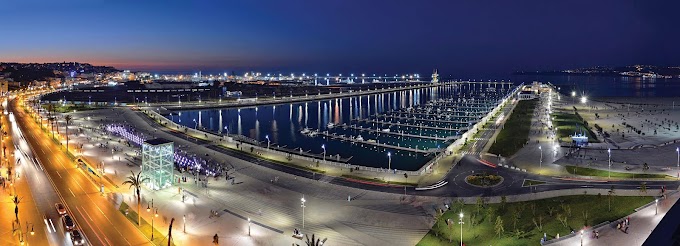Smart Travel on a Budget: Essential Tips to Save Money on Transport, Food, and Accommodation
Discover the best money-saving travel tips for transportation, food, and accommodation. Travel smarter and cheaper without sacrificing comfort or experience.
How to Travel the World Without Breaking the Bank
Traveling is one of life’s greatest joys, but it can quickly drain your wallet if not planned wisely. Whether you’re exploring Europe, backpacking across Asia, or road-tripping through America, managing your budget is key to enjoying every moment without stress.
This guide will show you practical and effective ways to save money on transportation, meals, and accommodation, while still experiencing the best of each destination.
travel budget tips, save money while traveling, budget-friendly travel, cheap accommodation, affordable transportation, save money on food travel
1. Transportation Hacks: Move Smart, Spend Less
Use Public Transport Instead of Taxis
Public transportation is often the most budget-friendly and authentic way to explore a city. Buses, subways, and trains not only save money but also allow you to experience local life.
Many destinations offer tourist travel cards or day passes that provide unlimited rides at a fixed price—perfect for those planning to explore all day.
Tip: Research local transport apps before your trip to check schedules and compare ticket prices.
Book Flights in Advance and Be Flexible
Airfare can consume a large portion of your travel budget. To cut costs:
Book at least 6–8 weeks in advance.
Use fare comparison sites like Skyscanner or Google Flights.
Fly mid-week instead of weekends for better deals.
Consider budget airlines—just remember to pack light to avoid extra baggage fees.
Try Shared Rides and Overnight Buses
If you’re traveling between cities, shared rides (like BlaBlaCar in Europe) and overnight buses or trains can save both money and a night’s hotel stay.
Sleeping on a night bus may not be luxurious, but it’s practical and surprisingly efficient for travelers on a budget.
2. Eating Smart: Save Money on Food While Traveling
Avoid Tourist Restaurants
Restaurants near major attractions often charge double the price for average food. Instead, eat where locals eat. Street food stalls, local markets, and small family-run cafes offer authentic meals at a fraction of the cost.
Tip: Use Google Maps or TripAdvisor filters to find highly rated, affordable local spots.
Cook Your Own Meals When Possible
If your accommodation offers a kitchen, take advantage of it.
Buying groceries from local supermarkets and cooking even one meal a day can save a significant amount over time. Plus, it’s fun to try cooking with local ingredients!
Bonus Tip: Pack a reusable water bottle and refill it at public fountains or filtered water stations instead of buying bottled water daily.
Embrace Street Food and Food Markets
Street food is not only delicious and cheap but also a cultural experience. From Thai noodles to Moroccan tagines, street vendors often serve the best versions of local dishes.
Food markets are also great for grabbing a quick bite and interacting with locals without paying restaurant prices.
3. Accommodation: Sleep Well Without Overspending
Book Early or Use Last-Minute Deals
Timing is everything when it comes to accommodation. Booking early guarantees lower rates, while last-minute apps like HotelTonight can score you surprising discounts.
Choose Hostels, Guesthouses, or Shared Apartments
You don’t have to stay in luxury hotels to have a comfortable night.
Hostels: Great for solo travelers who want to meet others.
Guesthouses: Perfect for couples or families on a budget.
Airbnb or Couchsurfing: Offers affordable stays with locals, adding cultural value to your trip.
Stay Longer for Lower Prices
Many hotels and rentals offer discounts for weekly or monthly stays. If you plan to stay longer in one place, negotiate a lower rate—especially if you’re visiting during the off-season.
4. Extra Tips to Maximize Your Travel Budget
Travel During the Off-Season
Flights, hotels, and even attractions are cheaper during non-peak times. You’ll also enjoy fewer crowds and a more relaxed experience.
Use Travel Reward Programs
Sign up for airline miles, hotel loyalty programs, and travel credit cards to earn points that can be used for free flights or upgrades.
Avoid Hidden Fees
Always double-check for hidden charges—whether it’s luggage fees, city taxes, or ATM withdrawal costs. These small fees add up quickly.
Walk or Rent a Bicycle
Walking is free, healthy, and allows you to truly discover the essence of a city. Many cities also offer bike rentals for short distances, a perfect mix of economy and exploration.
5. Real-Life Example: A Week in Thailand on $300
Imagine spending a week in Bangkok and Chiang Mai for less than $300:
Transportation: $40 (local trains, tuk-tuks, buses)
Accommodation: $100 (guesthouse or hostel)
Food: $60 (street food, local restaurants)
Activities and extras: $100 (temples, massages, souvenirs)
By following the money-saving travel tips in this guide, such a trip is absolutely possible—without feeling deprived or uncomfortable.
Conclusion: Travel Smart, Not Expensive
Traveling on a budget doesn’t mean giving up comfort or fun—it means spending wisely and experiencing more.
With a little research, flexibility, and creativity, you can explore the world without emptying your savings.
So pack light, plan smart, and remember: the best adventures don’t have to cost a fortune!
travel budget tips, save money while traveling, affordable transportation, cheap accommodation, budget travel food tips, budget travel guide, travel hacks 2025, how to travel on a budget





0 Comments